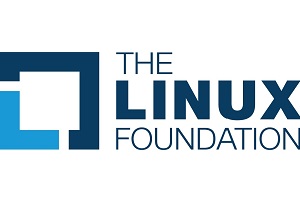Linux Foundation welcomes new open source projects from Peraton Labs to scale 5G security

The Linux Foundation, a nonprofit organisation focused on fostering innovation through open source, has announced an open sourcing of two new 5G projects, ProD3 and SEDIMENT, from Peraton Labs. Peraton Labs is a provider of applied research unit of Peraton a mission capability integrator and transformative enterprise IT provider. Both projects will now be hosted at the Linux Foundation as part of its broad portfolio of networking projects.
The ProD3 and SEDIMENT projects are key components of the Defense Advanced Research Project Agency’s (DARPA’s) Open Programmable Secure 5G (OPS-5G) programme. OPS-5G seeks to improve 5G security through a portable, standards-compliant network stack that is open, plug-and-play, and secure by design.
“Our work on OPS-5G is producing high-value 5G security solutions that enable secure operation over untrusted hardware, reduce the risk of supply chain attacks, and scale to accommodate the growing number of sensors and Internet of Things devices on 5G infrastructure,” says Petros Mouchtaris, PhD, president of Peraton Labs. “We look forward to supporting DARPA’s open-source work with the Linux Foundation by open sourcing our ProD3 and SEDIMENT projects in support of DARPA’s efforts to accelerate research, development, and innovation in open software for 5G and IoT.”
On ProD3, Peraton Labs is maturing a programmable, real-time, distributed defense capability for 5G network services. ProD3 provides distributed denial of service (DDoS) protection and defense against network compromise that scales for heterogeneous networks with devices ranging from Internet of Things (IoT) sensors to servers enabled for 5G and beyond.
On SEDIMENT, Peraton Labs is maturing open software for a distributed and scalable 5G security architecture with remote attestation for networked IoT devices of widely disparate size, weight and power (SWaP). The SEDIMENT solution relies entirely on software, requires no modification to existing devices, and enables rapid identification and isolation of potentially compromised devices.
“We appreciate the partnership with the US Government /DARPA to provide a public/private partnership using the best of open source principles, including an upstream-first strategy,” says Arpit Joshipura, general manager, networking, edge, IoT, Linux Foundation. “We look forward to expanding the collaboration and further enabling secure and scalable open source 5G solutions.”
The move signifies a growing partnership between the Linux Foundation and United States government agencies, part of a broader industry effort to open source more 5G and NextG functions for increased security, scalability, and flexibility.
Both projects come with government and industry backing, with additional support as follows:
ProD3
- Naval Information Warfare Centre Pacific (NIWC Pacific)
- Defense Advanced Research Projects Agency (DARPA)
- Peraton Labs
- FedML.ai
- USC Information Science Institute
SEDIMENT
- Naval Information Warfare Centre Pacific (NIWC Pacific)
- Defense Advanced Research Projects Agency (DARPA)
- University of California, Irvine (UCI)
- USC Information Sciences Institute
- Peraton Labs
- Kryptowire Labs
- Aarno Labs
More information about these projects may be found at here.
Comment on this article below or via Twitter @IoTGN
